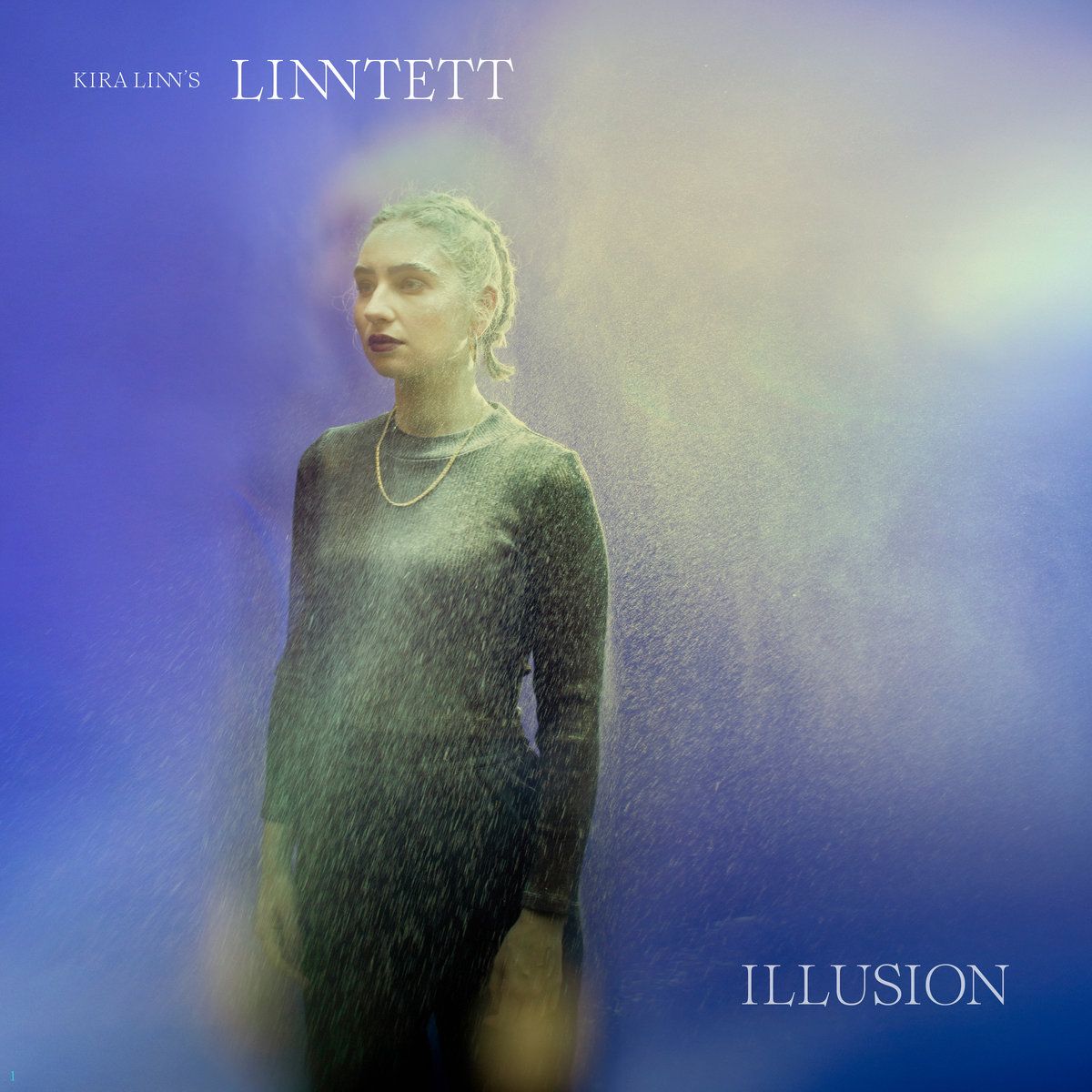Kira Linn: exploring her voice through a musical catharsis

It is in solitude that the inner voice acquires greater relevance. The echo of words expands in the absence of light, defying the shadows of reality. Amidst the global pandemic, transforming isolation into catharsis was the optimal way of discovering the possibilities of the vocal universe.

Detachment is one of the most valuable practices while starting the creative process. In her loneliness, German baritone saxophonist Kira Linn found new ways of expression and composition. "With this new album, we take another musical path: it's a mixture of different styles rooted in the jazz world but influenced by indie and pop music." Illusion is her last production, in which she and her sextet Linntett have explored the many shades of darkness. "This is the first time I'm singing on an album, and it’s all about the emotions that arose during the pandemic. It's special because I'm exploring my voice and writing lyrics."
In Illusion, it's easy to recognize the fidelity of interpretations. In a way, it's a new form of understanding that human crisis. "It's also because of the times we went through, which were not enjoyable, especially as a musician. It was sometimes very hard going through that period; negative emotions arose, and I tried to incorporate those feelings into the album. It was a cathartic experience, and I hope it resonates with listeners who have also gone through difficult times during the pandemic." Anger and powerlessness blend with the hope of being free again, "It’s an up & down journey. I think it’s nice to listen to the album more than once because you might notice little things you didn’t catch before."
During the last few years, Kira's musical spectrum has expanded exponentially. She comes from the big band scene and is transitioning to immerse herself in the pop scene, including a considerable ensemble and many improvisations. "That’s probably why the album is still rooted in jazz because we have a lot of solos. We all study jazz music, and I wanted to give freedom to the musicians to express themselves and let them bring their personalities. It’s nice to have these little parts where we go to jazz and show what we feel."
Throughout 11 songs, Linntett delves into a diverse mixture of genres. In Numb_ers, the six musicians explode against that reality. "Basically was about being confronted with numbers all the time: how many people are infected, how many people have already died from the virus. I just felt overwhelmed. There are all these numbers, and I don’t know what to do with them, so I wrote this song. It's super crazy, fast, and also kind of fun — the opposite of being confronted with these numbers. It also has a mechanical sound. I used a special way of arranging: the three saxophones are always in the same harmony, with the same intervals. I wanted to express that I was feeling like a machine, just working: I was there, but I didn’t see the purpose of being on Earth. It's like rolling on a machine; everything continues, but the emotions are missing, there is no joy." Numb_ers has a companion track called Dumb_ness, in which they played the song backward and then reversed it again, resulting in a similar sound between the two.
The power is not only in the musical compositions, lyrics, and messages have a clear social commitment. In Zoom I and Zoom II, an internal dialogue can be heard. "These two songs are about social media. We all can stay in contact through Instagram, or Facebook, but also it’s not reality. How people present themselves on social media is surreal, they always try to show only the best of themselves, which is not reality. I feel like it was kind of nice to have social media, especially in these times, otherwise, you wouldn’t be connected with your friends at all, but in the other hand it’s like an illusion like the world is just not real, it feels more like a movie, rather than reality."
Women to Sky it's one of my favorite songs. I had a lot of time thinking about female empowerment, and especially in the jazz scene, there are still not enough female instrumentalists. I realized that I grew up in a male-dominated environment going through the jazz school, where I was the only woman studying the saxophone. I just felt that I wanted to create a song that reflects what we went through and that shows we can fight for our rights. I want to empower women to pursue paths that may not be considered typical for girls.
Illusion is, at least for this sextet, the end of the pandemic. It's a place to return to whenever life becomes dark. It is an album that is not meant to please everyone, but it is for those who understand the importance of adapting and changing course. Kira Linn continues diving into a musical catharsis, sometimes with her saxophone and sometimes with her voice.